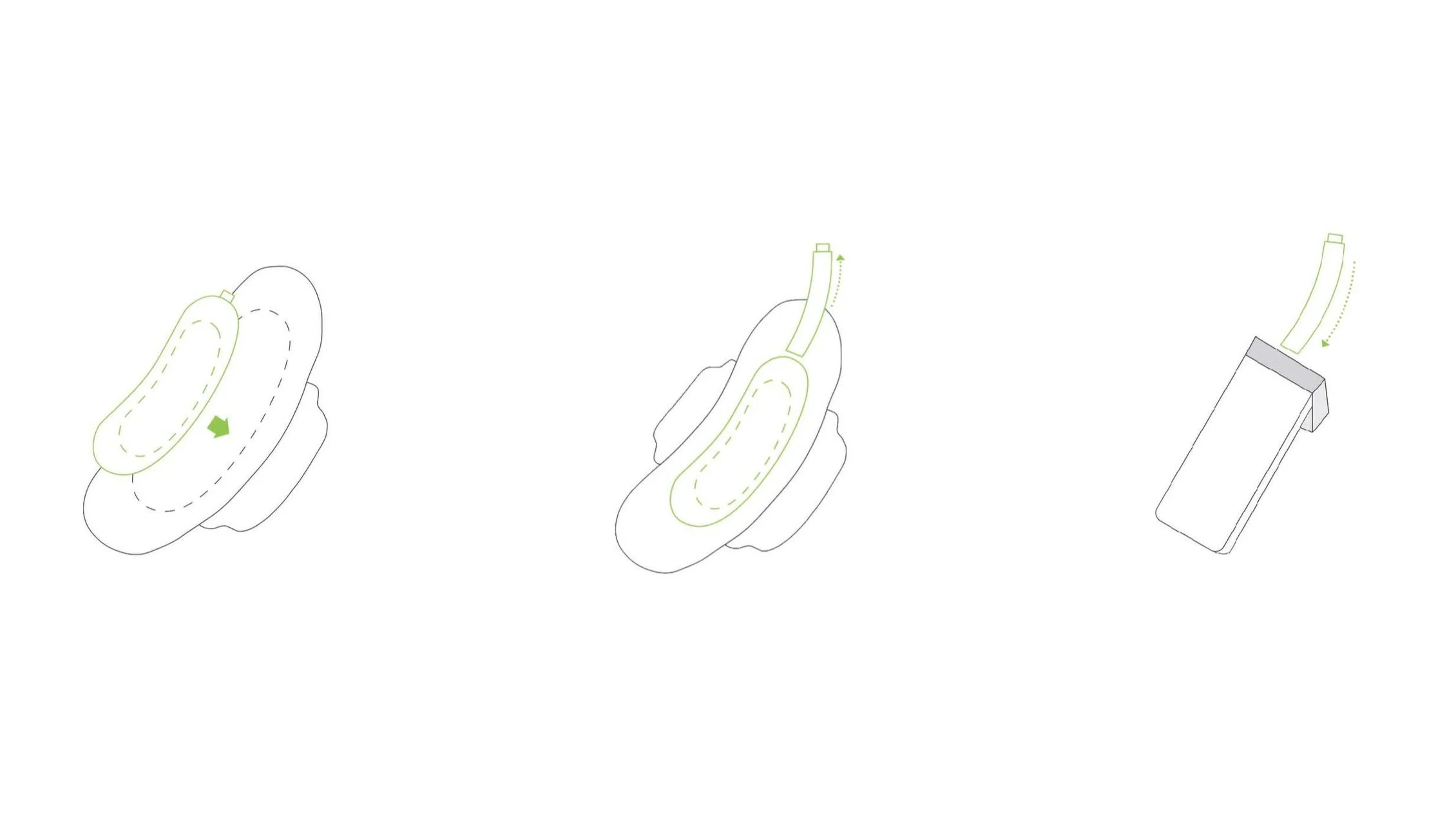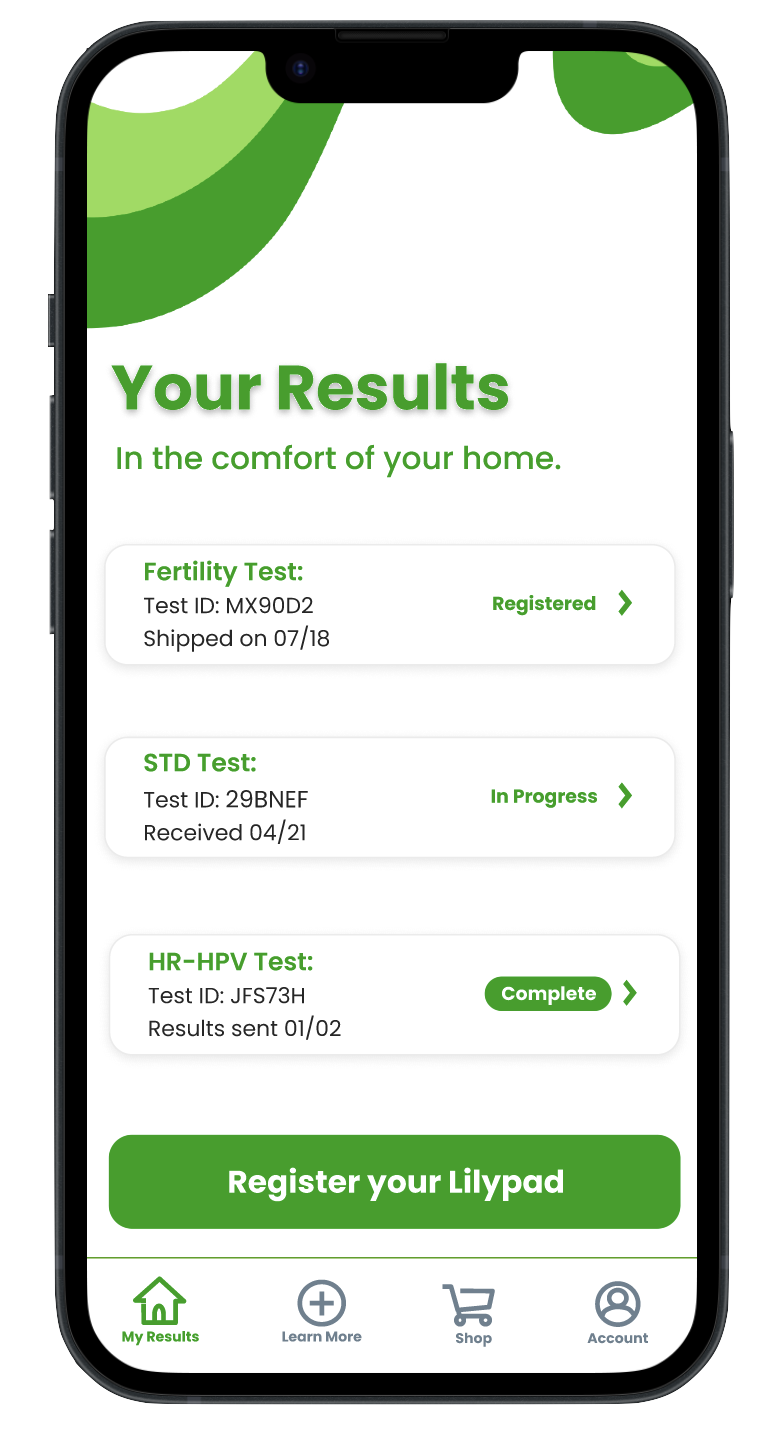Empowering Women’s Health: Discover Lilypad’s Innovative Screening Solution
Ethan Damiani, COO of Lilypad Health, was attending a lecture at Georgia Tech on emerging ways to detect cervical and breast cancer when inspiration struck. The lecture described drawing blood from the arm to test, but Damiani had a different idea. After the lecture, he asked the guest lecturer, “Has anybody considered looking into menstrual blood to detect cervical cancer?” He brushed off the concept, but Damiani did not give up.
With the seed of an idea, Damiani sought the opinions of his soon-to-be co-founders, Rhea Prem, CEO, and Netra Gandhi. He recounts, asking the two, “Do you guys think this is crazy?” However, the team began looking into the possibilities of testing menstrual blood as a source of health diagnostics. From there, Lilypad Health bloomed.
Lilypad’s technology is a non-invasive menstrual pad add-on that acts as a collection device to test for health markers such as like Thyroid hormone levels, A1c, fertility hormones, and HPV. The user wears the add-on as they typically would wear a menstrual pad. After two hours of wear, the user pulls the tab to remove the collection strip. Then, the collection strip is ready to be shipped off for lab testing. Finally, the results will be sent through an app that explains the results and advises users on the next steps.
To the startup, the decision to make the product an add-on was deliberate. First, Damiani explains that in many cultures, products like tampons are stigmatized, and “menstrual pads are the most globally used product.” So, by making a product that interacts with menstrual pads, the service is accessible not only in the U.S. but across the globe. Second, by designing an add-on, the company is not creating a one-size-fits-all product, which would be uncomfortable for all users. The design of Lilypad’s technology is intentionally made with accessibility and user ease in mind.
Another feature of the product that is vital in achieving Lilypad’s goal of allowing women to monitor their health from home is the app’s potential to educate users on their results. According to Damiani, the startup realized that “50% of the battle is educating the population on what everything means on how to get follow-up care.” Simply telling users results and measurements does not help them know if or how they should seek treatment. Through the app, Lilypad helps users through every step of the process, from the initial testing to receiving care.
While the guest lecturer initially dismissed his idea, the startup has had many other encouraging and beneficial experiences with Georgia Tech’s professors, alums, and resources. According to Damiani, “Getting started was made so much easier because people are just wanting to help out.” The startup began as the group’s senior capstone project, where they received support and were motivated by Professor Michael Fisher, Director of Biomedical Innovation and Development. In March of 2024, Lilypad was named the InVenture Prize winner and, that summer, participated in CREATE-X Startup Launch. Damiani emphasizes the help of Rahul Saxena, director of CREATE-X, who is “willing to really speak up for you and make the right connections.” The team also finds inspiration from fellow startup founders on Tech Square.
Although Lilypad has seen great achievement, according to Damiani, whether or not they fully succeed, the startup has an even greater goal: destigmatizing women’s health. He explains, “Whether or not we’re successful as a company, we just want to highlight the fact that women’s health has not had enough innovation in the last two centuries compared to every other kind of field.” Through their work, the company aims to destigmatize menstrual health and care, allowing people to not only talk about their experiences but also access the care they need.
To Damiani, this destigmatization also includes “having more trials, more research where we have larger female populations participate,” as the female patient population has been forgotten. However, having more data on the differences between male and female symptoms would help identify diseases sooner and ensure people can access the care they need. Recognizing that the female patient population has its own unique health needs is part of Lilypad’s mission. The startup determinedly envisions a more manageable and less invasive way to monitor health, regardless of others’ preconceived notions and stigmatization of female health.
“Every time we talk about it, we see this glass break in people’s brain where they’re like, why haven’t we tested menstrual blood?”


